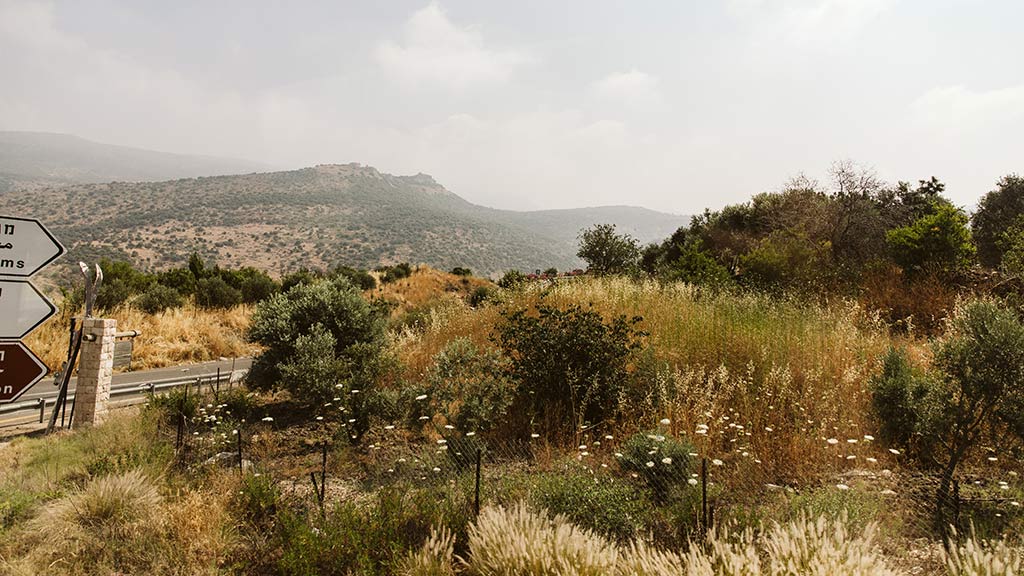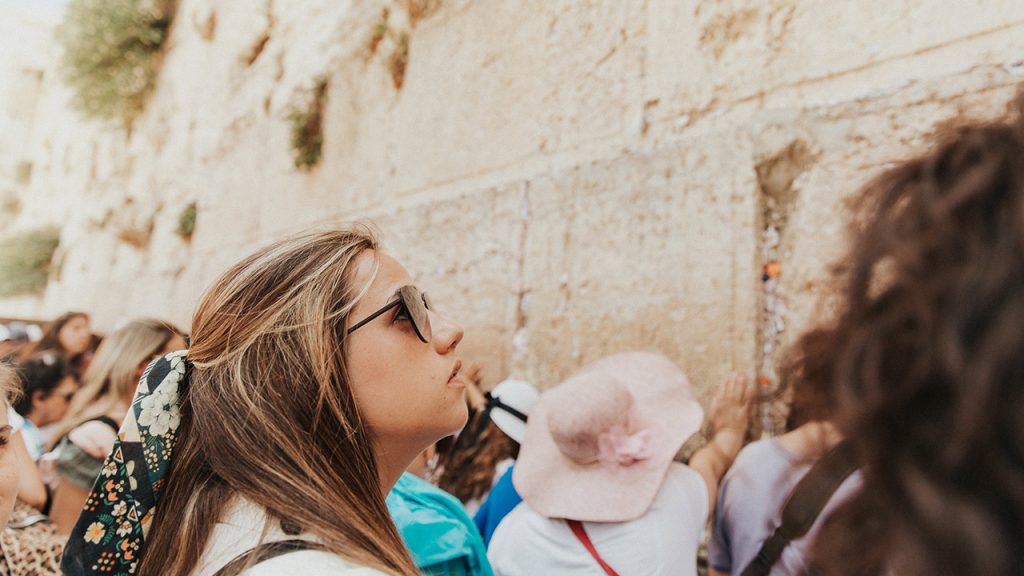What is the true meaning of Shalom?
Many are familiar with the Hebrew word shalom. Shalom means “peace” in English. But beyond that simple definition, what is “shalom’s” true meaning? The common western definition of peace is — the absence of conflict or war — but in Hebrew it means so much more.
Definition of Shalom in Hebrew
The root word of Shalom is “shalam”. One of the first uses of the word shalam in the Torah is in Exodus 21 and 22. In these 2 chapters, it is used 14 times.
Moses is giving instructions to the people about what to do when someone causes material loss or in the case of theft of property. When that loss or injury occurs, the owner is considered lacking or not complete. The one responsible was to make things right.
In the translation of Exodus 21-22, shalam is translated as “make it good”, “shall surely pay”, “make full restitution” or to “restore”. The ancient Hebrew meaning of shalam was “to make something whole”. Not just regarding practical restoration of things that were lost or stolen. But with an overall sense of fulness and completeness in mind, body and estate.
Download your FREE How to Pray for Israel PDF:
Wholeness and Well-being
This meaning of wholeness carries over into the word Shalom. In Genesis 43:27-28, Joseph, still unrecognized by his brothers, is asking about their health and his father’s health.
“Then he asked them about their well-being, and said, “Is your father well, the old man of whom you spoke? Is he still alive?” And they answered, “Your servant our father is in good health; he is still alive.” (NKJV Gen 43:27-28)
In Hebrew, the word translated as “well-being”, “well”, and “in good health” is all one word – Shalom.
Is “Shalom” also Arabic?
In Arabic the word for peace, “Salam”, sounds very similar and refers to a hope of world peace and the end of war. Meanwhile, the Hebrew word Shalom goes straight to the heart.
Because the true biblical shalom means an inward sense of completeness or wholeness. Although it can also describe the absence of war, a majority of biblical references refer to an inner completeness and tranquility.
Download your FREE Shabbat PDF:
How do you use the word ‘Shalom’?
In Israel today, when you greet someone or say goodbye, you say, Shalom. You are literally saying, “may you be full of well-being” or, “may health and prosperity be upon you.”

In a way, it is a blessing for coming and going, in any time frame, in any situation. This was exactly how the Apostle Paul, a Jewish Rabbi, ended his 2 Letter to the Thessalonians: “Now may the Lord of peace Himself give you peace at all times and in every way.” (2 Thessalonians 3:16).
As he was wrapping up his letter, he was teaching the Hebrew understanding of peace. And he was introducing it to a culture that was just getting to know the Lord.
In modern Hebrew, another common greeting is “ma shlom’kha” which means “how are you?” Yet, notice the word shalom in there. Quite literally you are asking “what is your completeness?” or, “how is your peace?”. It is yet another way to proclaim health and wholeness as you greet those around you.
Did Jesus use the word Shalom?
Undoubtedly. Notice what Yeshua (Jesus) said when He first met the disciples after the resurrection:
While they were telling these things, He Himself stood in their midst and said to them, “Peace be to you.” (Luke 24:36).
Remember, Yeshua is a Hebrew-speaking. Jewish Rabbi. He speaks to Jewish disciples in Jerusalem. He probably would have smiled at his stunned friends and said in Hebrew, “shalom lehkhem” (Peace to you).
It is not uncommon to hear this greeting on the streets of Israel even today. In fact, it is the most common greeting exchanged between Hebrew speakers. And even two thousand years ago, the disciples might have heard it as, “how are you guys? You need some inner peace!”
The next time you greet a friend in Hebrew to say “shalom” or “How are you?”, remember that it’s more than a casual greeting. You are speaking a blessing and wish well-being on others.

Transform lives in Israel through Gospel-centered ministries.
FIRM is your trusted partner for Gospel impact in Israel.
“Shabbat Shalom” Meaning
A similar greeting that you would hear at the end every week in Jewish communities around the world is “Shabbat Shalom”. Now with a better understand of Shalom, it’s a beautiful revelation when we combine it with the meaning of Shabbat. By doing so, it can bring new life to one of the 10 Commandments: to honor the Sabbath.
The Hebrew word Shabbat comes from the Hebrew word Lishbot which means “to stop” or the Hebrew word Lashevet which means “to sit”. How appropriate! Our lives are on the move, especially today. There are always places to go and things to do.
When we continue to live a non-stop lifestyle, things become stressful, priorities begin to shift and our focus on God can easily fade. The Lord knew that we would need to stop and to sit, on a weekly basis. Not for His sake but for ours!
Peace and Rest
For those of us who like to “get things done”, this is a challenging decision. If we are honest, it’s often not a decision of taking a day off, but a decision of to trust God.
Do we trust that God is able to do for us in 6 days what would take us 7 days to complete? Do we trust Him enough to help us prioritize our lives and live the best life He designed for us?
When we try to do everything by ourselves, we are really struggling with trust issues. We often just work harder trying to make whole the things in our lives that we have lost or that we are afraid to lose. In the long run, this rarely works. Enter the word, Shalom.
The True Meaning of Shabbat
What if one day a week, we focused on not just a day of rest but a day of getting our wholeness restored? What if weekly we could completely refill our life tank in our bodies, hearts and minds? That is what true shalom does, if we allow it.
When our peace is full and overflowing, we are able to trust Him to restore what may have been lost last week. We can confidently move forward in hope that we will have all that we need in the week ahead. This is what Shabbat is for. Shabbat is for Shalom. Shabbat Shalom.
Every Friday evening in Israel and Jewish communities around the world, you’ll hear the joyful Shabbat Shalom! Again, this is more than a greeting. Its intent is a hope to encourage others to enter the weekly time of restoration and of “making things whole” that was appointed by God.
Wishing Peacefulness to Each Other
Despite all the craziness throughout the week, Shabbat Shalom is saying: “may you end the week with a rest that brings that inner peace that recenters us on the One who gives it.”
And also: “May your next week begin with that sense of inner rest and completeness, where nothing is lacking.”
At its very core, that is what Shabbat is about! While the modern understanding of peace is looking for a break from life’s turmoil, a biblical peace addresses our hearts. If this is the way we understand biblical peace, then suddenly many verses take on a whole new meaning.
Shalom Meaning in the Bible
With this Hebrew thought of shalom in mind, let’s look at a few common Scriptures about peace:
In Ancient Israel
“Speak to Aaron and to his sons, saying, ‘Thus you shall bless the sons of Israel. You shall say to them: The LORD bless you, and keep you; The LORD make His face shine on you, And be gracious to you; The LORD lift up His countenance on you, And give you peace.’” (Numbers 6:23-26)
The context of the Aaronic Blessing is ironic (pun intended). God told Aaron to bless Israel with peace while they were getting ready to go conquer the Promised Land.
If peace means “the absence of war,” then this doesn’t make sense, since they would soon be destroying cities.
God was referring to an inner peace and completeness brought on by sharing in His countenance and His protection. That was the blessing that Israel needed!
Peace in Battle
Israel was to rarely experience times of outward peace, but even in the midst of battle, they were to have an inward rest brought on by the presence of the Lord, regardless of the outward circumstances — so it should be for us as well.
It is God who was giving shalom to Israel. It was gift then as it for us today. Which will we choose? Will we focus on the conflict and stress around us or will be choose to live and walk in the shalom that is offered to us?
We are able to be at full peace in our hearts, even while dealing with the seemingly messy chaos of life events surrounding us.
Jerusalem, City of Peace
“Pray for the peace of Jerusalem: May they prosper who love you. May peace be within your walls, and prosperity within your palaces.” (Psalm 122:6-7)
Today many are praying for the peace of Jerusalem due to the rising threat from Israel’s enemies. However, this exhortation to pray is not so Israel can live without conflict. It is so that Jerusalem can fulfill its destiny as set by the only One who can bring complete restoration to the city, which Jesus referred to as “The city of the great King.”

Psalm 122:6-7 should serve as a prayer for Israel’s spiritual revival. Verse 7 says that we are praying for peace within Jerusalem’s walls and palaces. That is where true biblical peace is found — within.
Pray for the fullness and restoration of Jerusalem for all the things that have been taken from her. We pray for the city become all that God has destined it to be.
The Prince of Peace
Our prayer is that there may be such wholeness and safety found in her palaces that it overflows to others. And most importantly, pray for the Prince of Peace to come and reign in His city of peace!
As prophesied in Isaiah 9:6, this Child born to us could be referred to as the “Prince of inner fulness [Peace]” and is the only One who can give this type of internal peace and rest. The city of peace will be wholly (or “holy”) complete, when the Prince of Peace establishes His Kingdom.
From this perspective, when we are praying Psalm 122 for the peace of Jerusalem, we are praying for more than an outward establishment of safety and security. We are praying the return of Israel’s Messiah, the Prince of Peace, to establish His throne in Jerusalem.
Peace on Earth
Angels appeared to shepherds in Bethlehem, bringing good news of great joy which shall be to all people (Luke 2:10). After instructions on how to find the baby, many more angels appeared proclaiming the following statement:
Glory to God in the highest, and on earth peace, good will toward men! (Luke 2:14)
Angels are messengers of God. They know His presence and what His Character is like. They continually dwell in the presence of the fullness of His Shalom. Yet, the event of Jesus being born on earth simply blew them away!
The Love and Peace of God
With their understanding of who God is, and of His love and peace that are His character, they could have said it like this:
“Glory to God in the most high place! No one is more loving and generous than the One who personified pure Peace among sinful men! What an earth-shaking plan! The fulness of Peace is now physically on earth as a loving gift to all men whom He favors!”
The angels were not saying “Ok, Jesus has come, so you can stop fighting”. That wasn’t the peace they mentioned. It was their sheer amazement that the One whom they praised, placed Himself in the embodiment of perfect Peace on earth. He did it as a gift. Glory to God in the highest place!
What did Jesus say about peace?
“Blessed are the peacemakers, for they shall be called sons of God.” (Matthew 5:9)
In this verse, Jesus is not referring to mediators or political negotiators, but to those who carry an inward sense of the fullness and safety that is only available through son-ship with God. The meaning of shalom is connection to God.
In the biblical Hebrew understanding of shalom, there is a point at which you have so much shalom that it spills out from you, and is repaid or rendered to others. And so, as you make others peaceful and inwardly complete, that makes you a peacemaker.
Jesus said these peacemakers will be called sons of God. Jesus was called the Son of God. By sharing God’s uncontainable peace with others, we become just like Jesus.
People of Shalom
How do we get this inner rest, completeness and wholeness? There are many throughout the world who are seeking the meaning of shalom and inner peace in multiple ways.
While there is a perfect peace that comes from trusting God (Isaiah 26:3), Jesus takes it a step further. As a gift from Himself to His disciples, He makes a clear distinction: “Peace I leave with you; My peace I give to you; not as the world gives do I give to you. (John 14:27).

How to Pray for Israel: Free PDF Download
Today, more than ever, Israel needs your prayers. Learn three simple and effective ways to stand with Israel in prayer, today.
We’ve put this guide together for you so that you are even better equipped to bless Israel as you pray for Her.
Articles Related to The True Meaning of Shalom
This article comes from a chapter titled “Shalom” in Doug’s book: “The Christian’s Biblical Guide to Understanding Israel”. To learn more, visit EzraAdventures.com/store.
- Shabbat Shalom – What is the Sabbath?
- God’s Covenant with Abraham: A Call to All People
- How is Shabbat Celebrated: 3 Sabbath Elements
- How to Talk to Others about the Crisis in Israel & Gaza
- The Israeli Palestinian Conflict: 10 Myths Preventing Peace
Estimated reading time: 12 minutes
